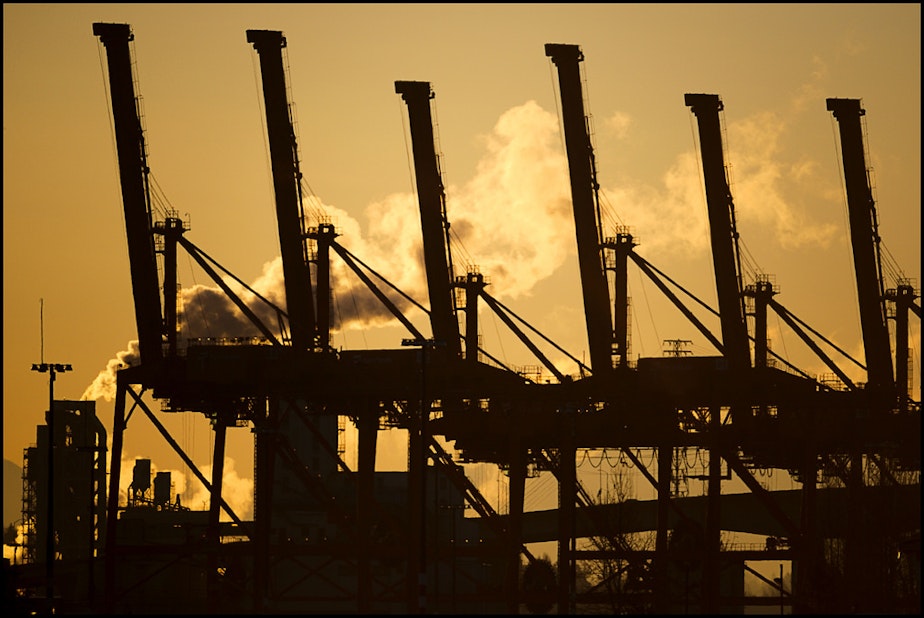Will Washington lead the nation on a carbon tax this November?

Voter support for a state carbon emissions fee or tax appears to be growing.
A new Crosscut/Elway Poll shows 50 percent of Washington voters now back the carbon tax initiative I-1631 on the November ballot. Thirty-six percent opposed it and 14 percent are still undecided.
Initiatives typically need more support than that at this point to survive the negative onslaught during the last few weeks of the campaign.
Q13 political analyst C.R. Douglas joined KUOW’s Angela King to discuss the initiative’s propects.
King: On Tuesday Bill Gates announced he's throwing his support behind I-1631. How big a deal is this endorsement?
Douglas: Well it's a big get. I mean you'd rather have Bill Gates and his money than not — but it doesn't ensure victory. There are plenty of things he's endorsed or given money to that haven't gone on to win. What's interesting I think is the method of the announcement. It was the simplest, least-fanfare thing imaginable: a blog post. There was no big press conference. And I think that was deliberate. You have to kind of finesse and not overplay these big mega-donors. The optics aren't great for having a billionaire get up and say, 'Hey you, raise your taxes.'
So how much would this measure cost the average household?
Opponents say it would be about $35 extra a month per household by 2020 in terms of gas costs, heating bills, that kind of thing. Supporters say no, it would be more like $10 to $15 per month.
Why the difference?
Well, the accounting on this kind of thing is a little bit hard to calculate. When you tax an oil company or a gas company, how much of that cost do they absorb and how much do they pass it on to consumers in the form of higher gas prices, all the rest? Opponents say, 'Hey, this will all be flowed to the consumer.' Supporters say, 'No, in a big, complex, competitive economy you're going to have some companies that decide to absorb at least some of the costs so that the burden will be shared.'
If Washington passes this we'd be the first state with such a carbon emissions fee or tax.
Absolutely. And you will see it being brought up in other states just like the pot initiative.
So there was a recent Crosscut / Elway Poll that found Republican Dino Rossi has a 10-point lead over Democrat Kim Schrier in the 8th Congressional District. Do carbon emissions factor into people's vote there?
That poll is a dramatic change from what the polls had shown up to then, which is basically an even race. The determinant is clearly the Kavanaugh hearings. According to this poll, that’s when things really shifted in his favor. And surprisingly it's women who were the real movers who have gone from Schrier to Rossi, according to that poll.
So this will settle a little bit. But what it shows is that there clearly has been a backlash to the Kavanaugh hearings and how he was treated by Democrats and that backlash is pronounced in this race among women.
Correction, 1:16 p.m., 10/15/18: The original version of this story misidentified the carbon tax poll.





